In Florida and across the U.S., here’s where — and how — rap lyrics have made it to court
- Oops!Something went wrong.Please try again later.
In Florida, rapper YNW Melly’s double murder retrial looms in 2024. Meanwhile, in Georgia, Young Thug is the latest high-profile hip hop artist to have his lyrics dissected in court.
Prior to Melly’s first double murder trial, many wondered if the artist’s music, including double-platinum song “Murder on My Mind,” would be brought into his case. Though it was rarely referenced in that trial, the question has come up again for his retrial.
In Thug’s case, prosecutors have quoted lyrics to back up the allegation that the Grammy award-winning rapper is a gang leader — and that his record label YSL, Young Stoner Life or “Young Slime Life,” is a criminal enterprise. In 2022, he and 27 others were charged in a 56-count Racketeer Influenced and Corrupt Organizations Act indictment.
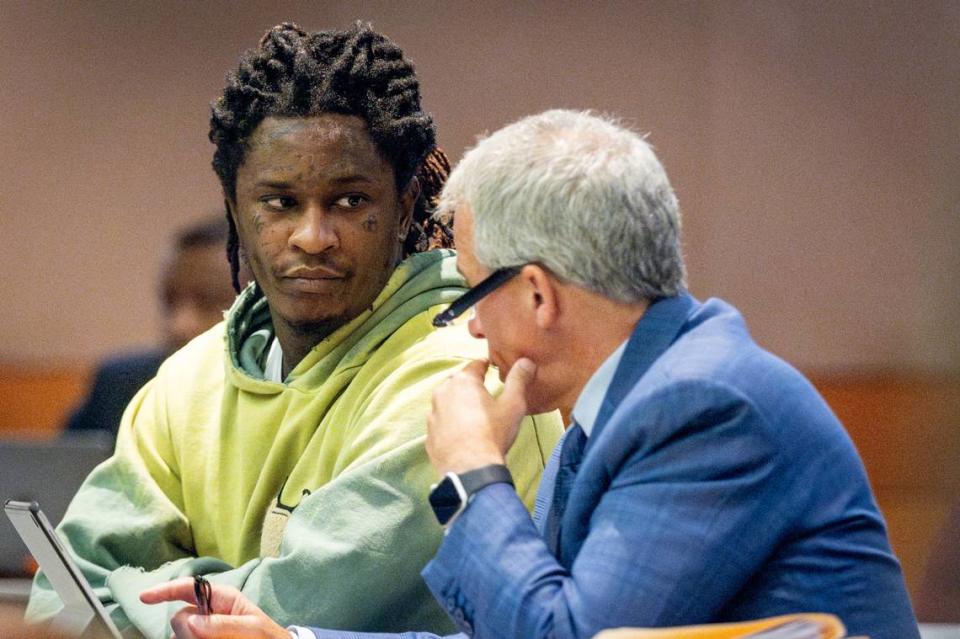
Thug’s heavily publicized case is one of close to 700 documented cases in which rap lyrics have been used in courtrooms, according to professor Erik Nielson’s Rap on Trial project.
It’s not just big name artists targeted. In fact, most cases that bring in lyrics as part of the prosecution involve aspiring rappers, who may have at most achieved local or regional fame, Nielson said. The targets of the practice are usually Black and Latino men between the ages of 18 and 25. Only about 2% of these types of cases involve white defendants, and the bulk of those are when lyrics are considered threats.
“Prosecutors latched onto the fictional reality of rap to use in prosecuting crimes because they often painted a narrative that society — jurors — would more easily accept and believe: violent, criminal Black and Latino young men,” Nielson and researcher Andrea Dennis said in their 2019 book “Rap on Trial: Race, Lyrics, and Guilt in America.”
Here’s where — and how — rap lyrics have been used in courtrooms near you.
In Florida
The number of Florida cases involving rap lyrics was only trumped by California, which barred the use of lyrics in court under most circumstances in 2022. Florida courts have ruled that lyrics can be admitted into evidence to establish motive or show that a defendant celebrated a crime or intended to commit one.
Of the 50 cases the Rap on Trial project identified in Florida, four out of every 10 occurred in the South Florida counties of Miami-Dade, Broward and Palm Beach.
Miami-Dade led the state with 11 cases, most heard in federal court. Palm Beach and Duval, the county that includes Jacksonville, followed with five each.
Across the U.S.
The top five states with the most rap-related cases were California with 211; Florida with 50; New York with 46; Pennsylvania with 38; and Texas with 31.
The high number of cases in California — aside from being the most populated state — is tied to the frequent use of gang enhancements, said Charis Kubrin, a professor of criminology, law and society at the University of California at Irvine. Gang enhancements are used to link a defendant’s gang affiliation to a crime to get additional time tacked onto a sentence.
“They’re using the lyrics to get the gang enhancement, beyond just using the lyrics to claim a motive with respect to an alleged crime,” said Kubrin, who has testified as an expert witness in several cases involving rap lyrics and gangs.
While California currently leads, Kubrin said changes to state law related to the admissibility of lyrics in court could cause a shift in the near future.
How rap lyrics were used over the years
▪ California: During the 1993 murder trial of rapper Snoop Dogg and his bodyguard, prosecutors played Snoop’s song “Murder Was the Case,” which included lyrics “Man, hand me my motherf---ing Glock man, give me another clip.” A jury found both of them not guilty.
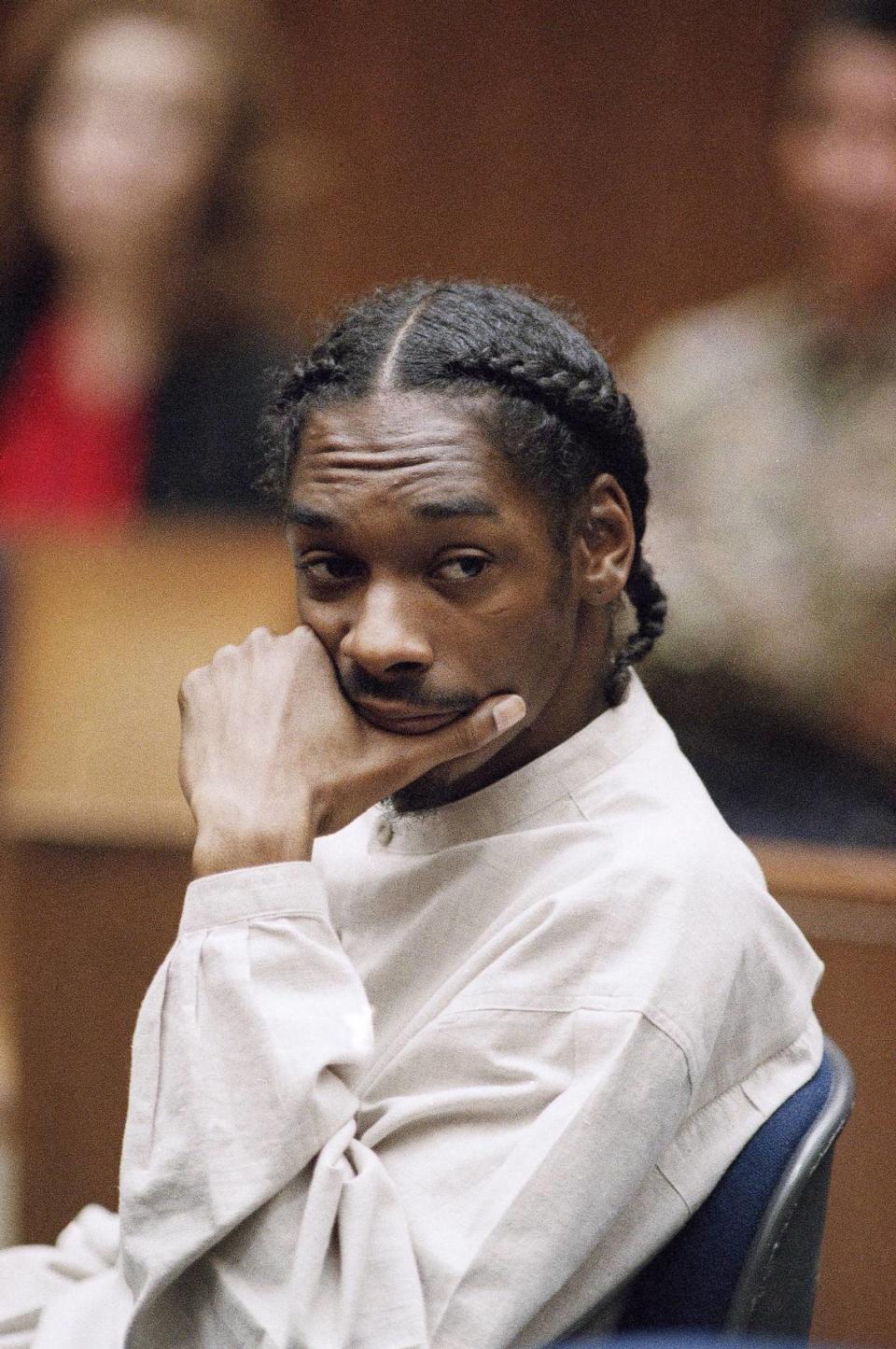
▪Broward County, Florida: During the 1994 trial of Martin Puccio, a fellow jail inmate mentioned a rap song Puccio wrote about his childhood best friend, who he was accused of killing. He was convicted and sentenced to life in 1995.
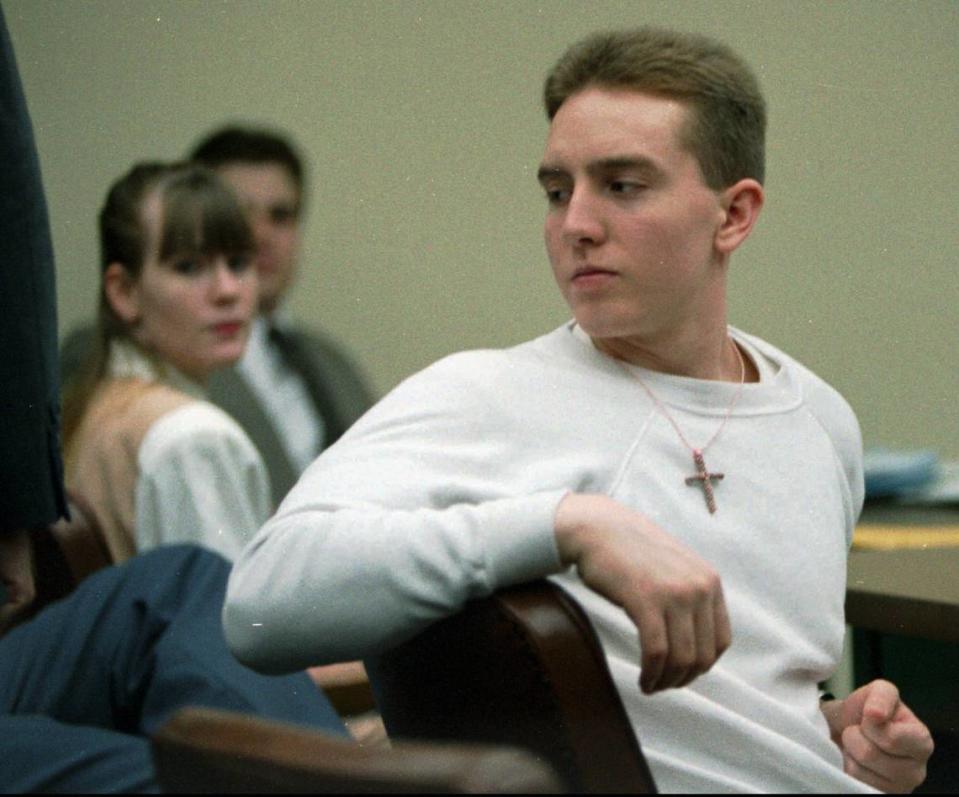
▪ Miami-Dade County, Florida: During a 2008 federal torture trial, rap lyrics found in the possession of Roy Belfast Jr., the son of a former Liberian president, took center stage. Belfast, who went by several aliases, was arrested in 2006 after trying to enter the U.S. with a passport obtained through false statements. Some of the quoted lyrics included: “Take this for free, six feet is where you gonna be. ATU n----- on the scene. Body bag is all you see.” (ATU stands for Anti-Terrorist Unit, a paramilitary force in the African nation.) Belfast was sentenced to 97 years in federal prison for torturing people in Liberia from 1999 to 2003.
▪ Louisiana: During the 2012 murder trial of rapper Boosie, then known as Lil Boosie, prosecutors played his song “187,” which featured lines such as “Any n---- who ever tried to play me, they dead now.” A jury found Boosie not guilty.
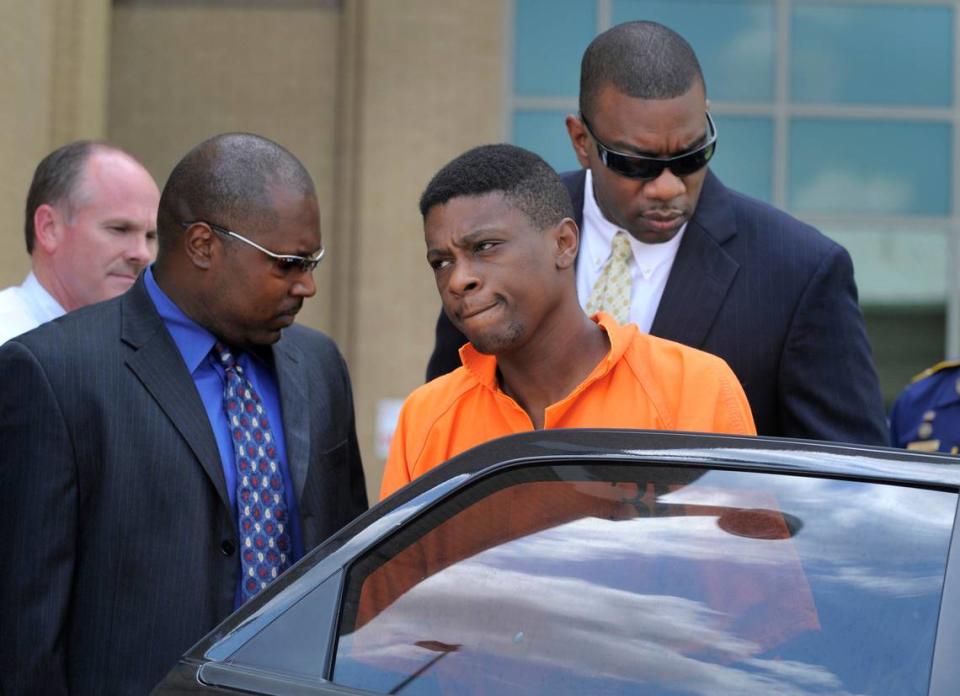
▪ Texas: During the 2019 murder trial of rapper Tay-K, prosecutors used his hit single “The Race” — and the song’s music video — as evidence that the young artist was behind a fatal 2016 robbery. The song included lyrics such as “You want action, you get turned into past tense” and “I woke up too moody, who gon’ die today?” Tay-K is now serving a 55-year sentence.
▪ Duval County, Florida: During the 2022 trial of Jacksonville rapper Spinabenz, prosecutors referenced lyrics from his song “My Glock,” which included lines such as “My Glock cost $300” and “Oh she 18? Give that b---h $300, too.” A jury found Spinabenz not guilty of possession of a firearm by a convicted felon.
▪ Palm Beach County, Florida: During the 2023 trial of aspiring rapper Edward Leger-Berzolla, who was accused of making threats, prosecutors dissected his “School Shooter” music video, which he advertised near a Palm Beach high school. The song included lyrics such as “This is the last f---ing time I say it before I spray it. I ain’t f---ing kidding this time.” A jury found Leger-Berzolla not guilty.
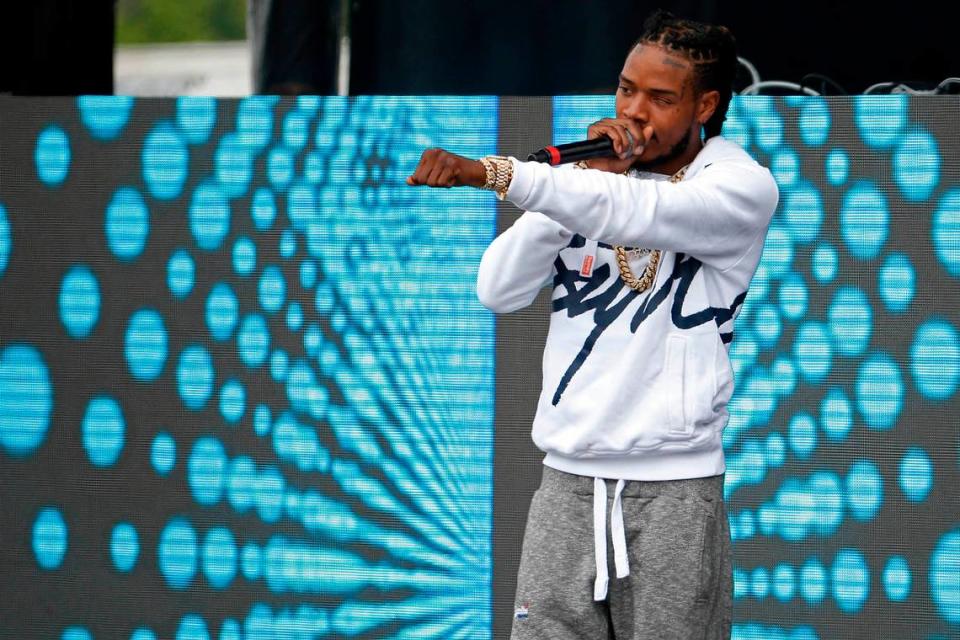
▪ New York: During the 2023 sentencing of rapper Fetty Wap, who pleaded guilty in a drug trafficking case, prosecutors sought a harsher sentence by citing the lyrics to his hit song “Trap Queen,” which they argued “glamorized the drug trade.” Fetty Wap was sentenced to six years in federal prison.

